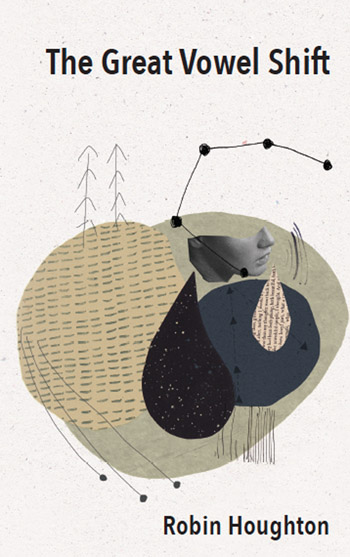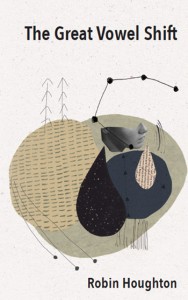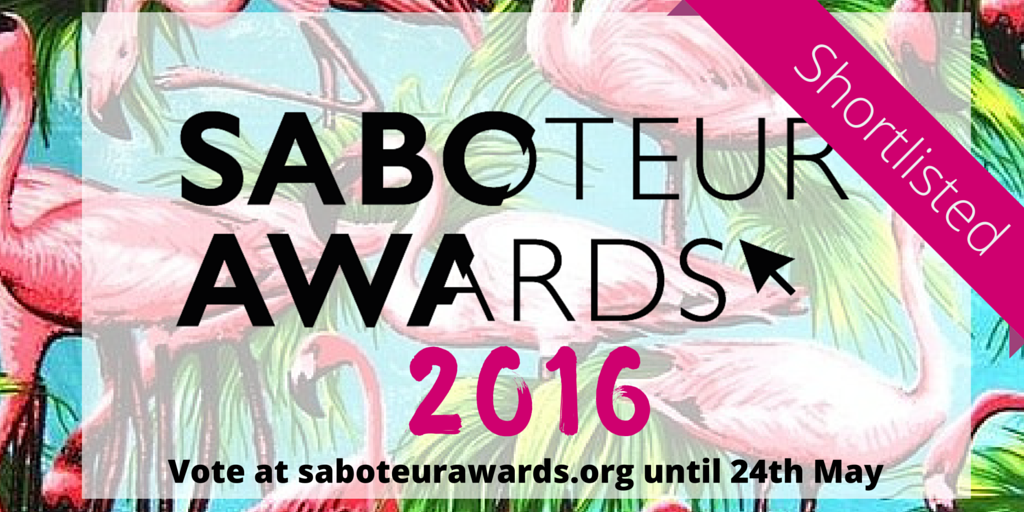The Great Vowel Shift by Robin Houghton
-Reviewed by Afric McGlinchey–
Robin Houghton’s chapbook, beautifully produced by Telltale Press, is an engaging collection of amuse-bouches, alternating droll, ‘slant’ narratives with subtle poignancy. Houghton’s preferred form is long-lined stanzas usually two or three lines in length, although there is pleasing variety. Her voice is clear and unaffected. The poems are accessible enough to hold our immediate attention and to be memorable, but also have just enough mystery to keep the reader curious.
‘River Ouse, Rodmell, 1941’, is beautifully evocative, without being overtly biographical, the title being the only direct reference to Virginia Woolf. The stark implications of this poem, however, pack a punch:
Pebbles lean into her, take us they say, take us, the floods are coming
but like Noah she must leave some behind, the unbelievers.
‘The Great Vowel Shift’ is wonderfully quirky and surreal: ‘the long pull / of voices stretching themselves thin like catgut /or pudding skin.’ ‘Closure’ describes an assignation with a married man ‘dialling room service after phoning home give them a kiss from daddy’ and interestingly, the focus is on a scar left by a heart transplant: ‘it is a beautiful thing like a line between time zones / it begins today and ends in yesterday’. The images in this poem, the cool, detached tone in the third person, work very effectively. ‘Blue Willow’ is more elusive than most, but the narrative is intriguing, with a mythical symbolism. In fact, only one poem didn’t quite work for me, and this was ‘Left’. While the images here are visual and vivid, I felt the reached-for pun was overly laboured.
‘East from Seahouses’ stretches sentences like elastic, with assonant words, and in the end, it’s a simple narrative of an afternoon out on a ferry, bird-watching, but I’m there. Another device Houghton is fond of is the blank pause, which in ‘Ellipsis’ is used effectively as a concrete symbol of a woman with dementia.
What is most refreshing about this chapbook is the range of themes and approach. Occasional misuse of commas is mildly grating, but this is a minor flaw. In ‘Still here’, a poem about lost, underground rivers, Houghton again includes pleasurable words: ‘once they carried chisels and scalpels, /Roman hoes and mandibles / thrown like a Latin oath into the Fleet / –or Rorn, or Quaggy – / with the tannery scrapings’. In ‘Midnight pickup’ the dissonant/assonant/alliterative combination of words irresistibly invites the reader to read the words aloud – and slowly: ‘breath is as slow as it takes/for a dot to grow bus-big’. The poem ‘When my sister is old’ becomes poignant for me because for some reason I sense that she is no longer here, although nothing in the poems suggests this. (But as a reader, I get to decide that this is the case.)
One becomes tired of the usual themes of nature/memory/childhood/autobiography, and yet can be alienated by overly experimental work. Houghton manages to circumvent the tediousness of the former without crossing too far over into the latter. Moreover, her poems live equally comfortably in rural (riverine) and urban environments, and her diversity, cultural references and lack of self-consciousness are really refreshing. All in all, I loved this slim chapbook, and feel glad to have discovered an exciting, new voice.




